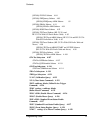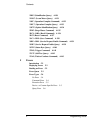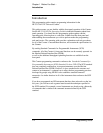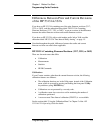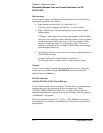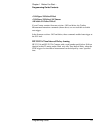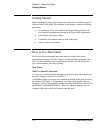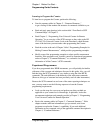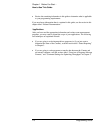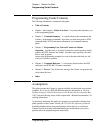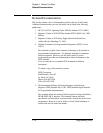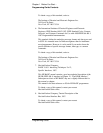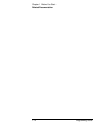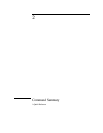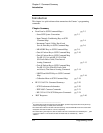
Chapter 1 Before You Start ...
Programming Guide Contents
Programming Guide 1-7
Learning to Program the Counter
To learn how to program the Counter, perform the following:
• Scan the summary tables in Chapter 2, “Command Summary,”
to get a feeling for the number and structure of commands available to you.
• Read and study map drawings in the section titled “Front Panel to SCPI
Command Maps” in Chapter 2.
• Read Chapter 3, “Programming Your Universal Counter for Remote
Operation,” for an overview of the SCPI concepts as they relate to the HP
53131A/132A Universal Counter. Look at the flowcharts, which illustrate
some of the decisions you must make when programming the Counter.
• Read the section at the end of Chapter 3 titled “Programming Examples for
Making Common Measurements,” which provides programming examples.
• Modify some of the programming examples to select specific measurement
functions. If the programs work, consider yourself an experienced programmer
and use Chapter 4, “Command Reference,” as a reference for detailed
information of all the Counter ’s SCPI commands.
Experienced Programmers
If you have programmed other HP-IB instruments, you will probably be familiar
with many of the concepts and techniques discussed in this guide. Also, you will
find that using the SCPI commands is very similar to using the older HP-IB
commands. The main difference is the hierarchy of the subsystem commands.
(However, this type of structure has been previously used on other instruments.)
Because the SCPI command set and some of the status reporting techniques are
new, you may want to use the following sequence to learn the Counter
programming requirements:
• Look over the steps for a new user and perform any that you think are
applicable to your current level of knowledge. In particular, look at the
measurement techniques and examples provide in Chapter 3, “Programming
Your Universal Counter for Remote Operation.”
• Review the summary tables in Chapter 2, “Command Summary.” If this
chapter contains sufficient information to get you started, write some
programs to explore the Counter’s capabilities. If you need additional
information on any command, refer to the applicable command description in
Chapter 4, “Command Reference.”



